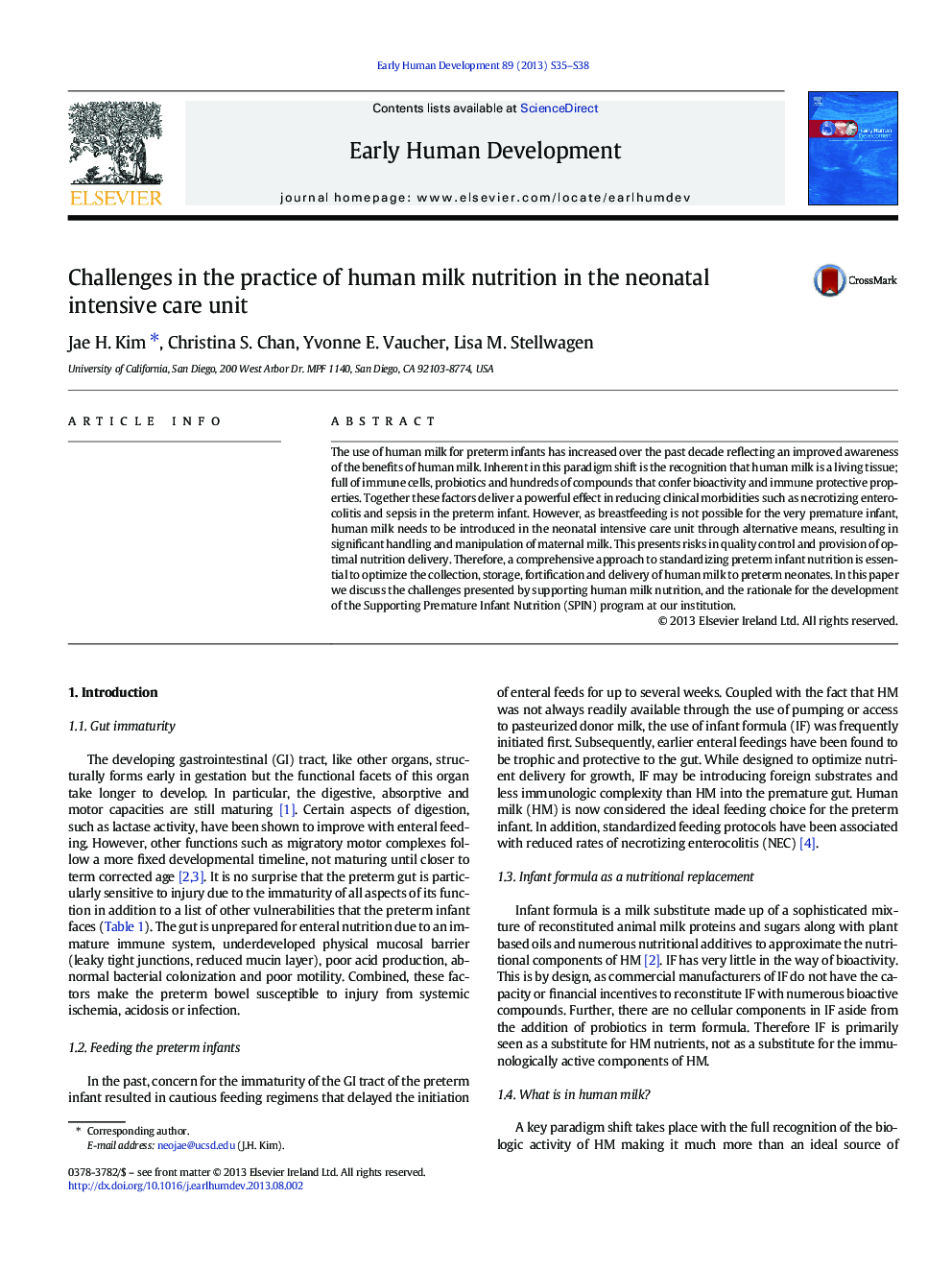| Article ID | Journal | Published Year | Pages | File Type |
|---|---|---|---|---|
| 3917022 | Early Human Development | 2013 | 4 Pages |
The use of human milk for preterm infants has increased over the past decade reflecting an improved awareness of the benefits of human milk. Inherent in this paradigm shift is the recognition that human milk is a living tissue; full of immune cells, probiotics and hundreds of compounds that confer bioactivity and immune protective properties. Together these factors deliver a powerful effect in reducing clinical morbidities such as necrotizing enterocolitis and sepsis in the preterm infant. However, as breastfeeding is not possible for the very premature infant, human milk needs to be introduced in the neonatal intensive care unit through alternative means, resulting in significant handling and manipulation of maternal milk. This presents risks in quality control and provision of optimal nutrition delivery. Therefore, a comprehensive approach to standardizing preterm infant nutrition is essential to optimize the collection, storage, fortification and delivery of human milk to preterm neonates. In this paper we discuss the challenges presented by supporting human milk nutrition, and the rationale for the development of the Supporting Premature Infant Nutrition (SPIN) program at our institution.
